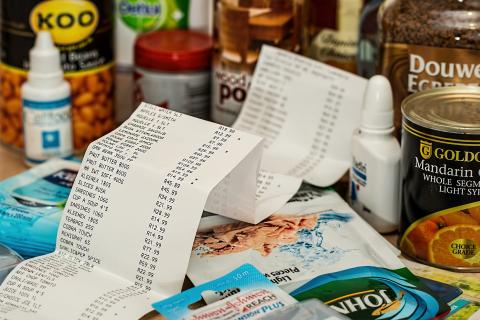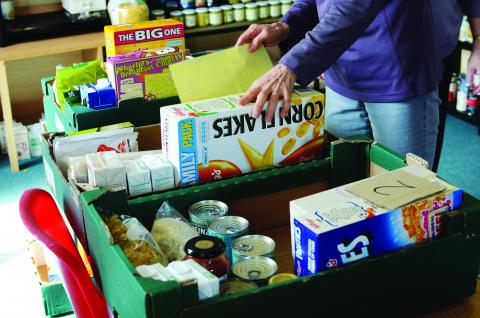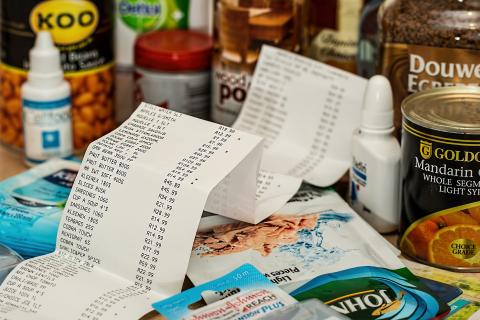19 April 2023
Food Prices Tracker: April 2023
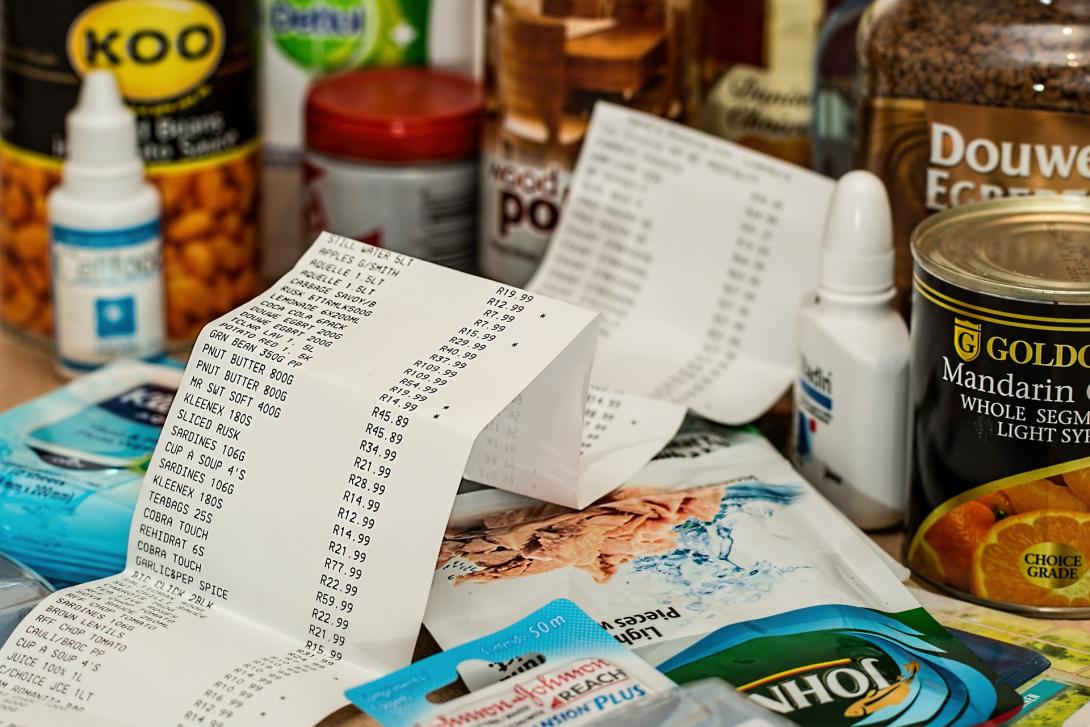
by Josh Day
Food inflation rises to 19.1% according to latest government data
General inflation fell less than expected this month dropping from 10.4% to 10.1% (CPI). Despite the slight fall in general inflation, food inflation has continued to rise and remains significantly higher than overall inflation. Food inflation was one of the only categories to increase this month and is a major contributor to inflation remaining so high.
One year of The Food Foundation's Basic Basket Tracker
Analysis shows the price of a weekly basket of food has increased by 24-26% since April 2022. The Food Foundation’s Basic Basket Tracker measures weekly prices of a basket of food for an adult man and adult woman as part of a reasonably costed, adequately nutritious diet. We began tracking this in April 2022 with the aim of providing an indication of trends in food prices and how this might be impacting on the cost of buying sufficient food. The increase in price is even higher than the ONS’s food inflation figure for the past year. ONS's food items are not selected to reflect the change in price of a typical food shop and dietary requirements are not a consideration in the selection of the products. (For further information on how the products in our Basic Basket are selected and tracked please see the FAQs).
Some food categories have been harder hit by increasing prices due to specific production and supply chain pressures and this has been reflected in our Basket Tracking*:
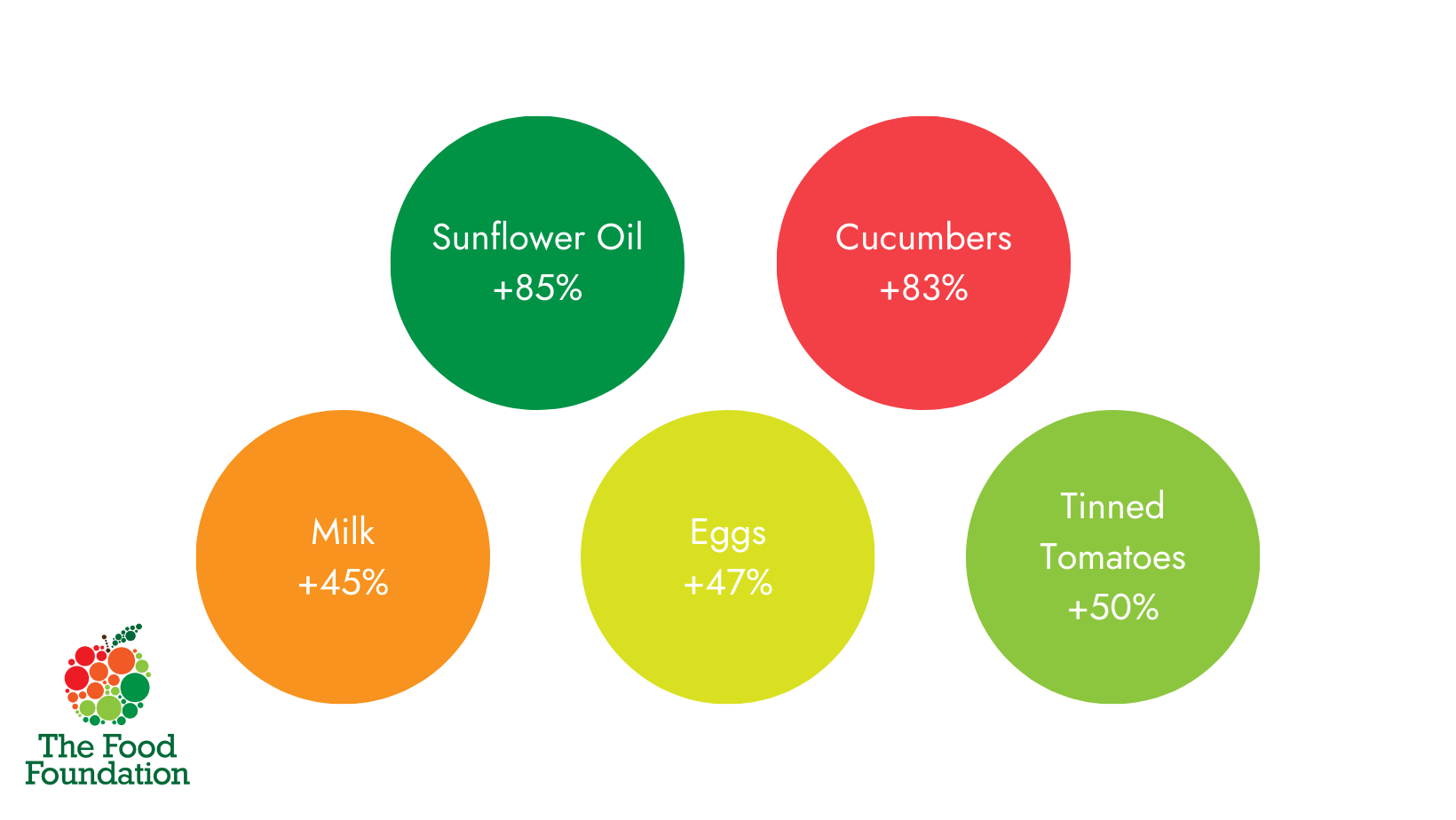
Sunflower Oil
Sunflower oil skyrocketed in price during the last year, increasing by 85%. The growing price of sunflower oil is, in large, a result of the invasion of Ukraine by Russia. When the war in Ukraine began it resulted in immediate disruption to the global supply of sunflower oil. Ukraine is the world’s third biggest exporter of vegetable oils and the leading exporter of sunflower oil, exporting approximately 45-55% of the global supply sunflower over the 10 years leading up to October 2022. The FAO described Russia and Ukraine as the most important producers of agricultural commodities in the world. The results of the war on consumer prices became quickly apparent with global and UK retail prices for vegetable oils soaring.
Milk
According to The Food Foundation’s Basic Basket Tracker, the weekly cost of milk has risen by 43% over the course of a year from April 2022. Wholesale milk prices climbed to record highs in December 2022. The cost of animal feed, fuel, and fertiliser have all risen over the last year, largely due to Russia’s invasion of Ukraine. At the same time, the UK experienced a summer of droughts which meant the country had limited amounts of forage to feed cattle.
This year has also seen the food and farming sector experience significant labour shortages. A survey of 541 farm owners by Arla found that 80% of farmers looking for workers reported having received ‘very few’ or ‘zero’ applications from individuals with the right qualifications or experience. The increased challenges faced by dairy farmers triggered renewed negotiations with retailers and ultimately price increases being passed on to citizens.
However, this week the price of milk has fallen for the first time since The Food Foundation began tracking prices in April 2022 following Tesco’s announcement that they would be reducing milk prices following a fall in wholesale costs, which was quickly mirrored by many of the UK's major retailers. Despite this, it is important to acknowledge that the cost of milk remains extremely high compared to last year and that price reductions are yet to show a significant impact on the overall price of a weekly shop.
Eggs
The cost of eggs has increased by 47% over the last year. Egg farmers have experienced many of the same inflationary pressures and challenges as dairy farmers in the UK, leading to much higher costs of production. The surge in egg prices has been accompanied by shortages which left many retailers with empty shelves. This was caused by producers scaling back production or leaving the industry altogether as a result of the increasing price of production. The total laying flock in the UK dropped by approximately 3 million birds between September 2022 and February 2023, according to data. On top of production slowing, the UK has been impacted by the global avian influenza pandemic resulting in hens dying from bird flu directly or culling intended to prevent the spread of the virus. The climbing costs for producers has translated into higher prices on shelves and has most likely been exacerbated by shortages while demand has remained consistent.
Chopped Tomatoes and Cucumbers
Over the past year, we have seen the cost of many fruit and vegetable items increase exponentially. Our Basic Basket Tracker shows chopped tomato prices had increased by 50% while the price of cucumbers had increased by 83%. The last year has also seen veg shortages affecting retailers throughout the UK. In February 2023 ASDA placed limitations on the amount of selected fresh food items that customers would be able to purchase at one time. In the following months, many of the UK’s largest supermarkets followed suit when Tesco, Morrison, and Aldi also rationed their fresh fruit and vegetables. In part, the shortages were due to unusually cold weather in Spain and floods in Morocco affecting crop yields that the UK relies on during the colder months. These troubles were furthered by high energy prices impacting produce grown in greenhouses in the UK and the Netherlands.
As food inflation continues to rise, driven by a variety of global and domestic factors, The Food Foundation’s Basic Basket Tracker pulls into focus the real-world impacts that are being felt by people throughout the UK. War, climate change, labour shortages all may seem distant when we browse our local supermarket but all of these influence the price of food on the shelves. Going forward our government needs to ask what can be done to safeguard those feeling the effects of a food system unable to stand up to the kinds of global shocks that are beginning to feel all too common place.
*Price increases reflect the increase in price in the first year of tracking (2/4/22 to 3/4/23).

Josh joined The Food Foundation in 2023 as part of the Rank Foundation’s Time to Shine scheme. He completed a BA in Film Studies before continuing to study an MA in Culture and Critical Theory. Before moving to The Food Foundation Josh worked in a variety of roles in a primary school setting, utilising his experience to support the most vulnerable and disadvantaged members of the school community. Josh is interested in the impact that food systems and environments have on people's lives and is driven by a desire to ensure people have better access to a healthy and nutritious diet.

Shona joined The Food Foundation as a Project Officer in 2019 and has worked on research, policy and advocacy across a range of projects over that time including leading our food insecurity surveys and flagship annual Broken Plate reports. She now works across the charity's policy portfolio including our children's food campaigns, food insecurity and food environments. She is a Registered Associate Nutritionist with a background in clinical nutrition who worked in dietetic departments in NHS hospitals before joining The Food Foundation.

Indu joined The Food Foundation in 2019 as part of the Rank Foundation’s Time to Shine scheme, moving into a Project Officer role in 2020. She works on the Peas Please and Plating up Progress projects. Prior to joining The Food Foundation, Indu completed a MSc in Public Health and a BSc in Human Nutrition. She is interested in reducing health inequalities, children’s health and wellbeing, and sustainable and nutritious food system/diets. Indu is also a lover of veg, having recently taken up urban gardening.
